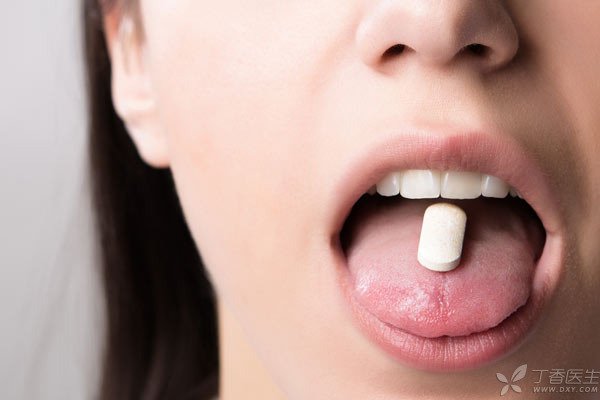
When pregnant in October, every mother wants to give her baby the best thing in the world once she gives birth, and for the newborn baby, the best thing is breast milk. However, during the long lactation period, if she does not pay attention to it, the mother may get sick, and breast milk may be affected by drugs, which may bring harm to the baby’s [food ration] supply.
If you get sick during lactation, what should mothers pay attention to when taking drugs?
Compound Cold Medicine, Potential Milk Recovery Medicine
Nowadays, most mothers are professional women, but in order to breastfeed their babies, there are many [breast-feeding mothers]. I have a breast-feeding mother beside me, but an unexpected cold almost caused her to cut off her baby’s [food ration].
That time she caught a cold, in order to recover as soon as possible, she took the new Contec to relieve nasal congestion. After taking the medicine for 3 days, she found that her milk production had decreased significantly and began to doubt whether the medicine she took was caused, so she called me for advice.
I told her that New Contec is a compound cold medicine. Each capsule contains 90 mg pseudoephedrine hydrochloride and 4 mg chlorphenamine maleate (trade name: [chlorpheniramine]). Although these two ingredients do not cause what harm to babies through milk, they can both lead to a decrease in milk volume.
The common cold can be cured, and this medicine can only relieve symptoms, so I advised her not to take it. At the same time, I suggested that she drink more soup to promote the excretion of the medicine, and take the time to feed the baby personally as much as possible to stimulate breast milk secretion.

These four kinds of drugs can hurt babies through milk.
Breastfeeding is supposed to be a natural thing for every mother, but unfortunately, mothers with the following situations have to give up breastfeeding:
- AIDS, tuberculosis, T cell infection and other infectious diseases; Drug addicts or alcoholics; The mother who underwent cancer radiotherapy and chemotherapy.
Mothers who are forced to give up breast-feeding can be prescribed by doctors to return milk. Bromocriptine is currently commonly used in western medicine prescriptions. Please consult your doctor for specific administration methods.
In addition to drugs that may affect the mother’s milk production, some drugs may also affect the baby’s health. Lactating mothers should try to avoid using the following drugs.
1. Ribavirin
Ribavirin, also known as ribavirin, has definite teratogenic effect during pregnancy, and its safety during lactation is not supported by clinical data. Moreover, it takes several weeks for the drug to be completely removed from the body and should be avoided during lactation.
2. Tetracycline antibiotics
In addition to tetracycline, this kind of antibiotics also includes aureomycin, doxycycline (also known as doxycycline), minocycline (also known as minocycline), etc. This kind of drug can enter milk, if nursing mothers take it for a long time, there is a risk of causing babies to have tetracycline teeth.
3. Oral contraceptives containing estrogen
The common contraceptives in the domestic market are mostly compound contraceptives, which usually contain two types of ingredients: progesterone and estrogen, such as Yousmin and Marvelon.
During lactation, contraceptives containing estrogen should be avoided as much as possible. Long-term administration will inhibit lactation and lead to a decrease in the mother’s milk production, thus affecting the baby’s [food ration]. However, contraceptives containing only progesterone can be used.
4. Analgin and other drugs containing aminopyrine
You may not be familiar with the name aminopyrine, but if you want to say the names of analgin, analgesic tablets and antongding, you must have heard of them. The effective ingredient of these drugs is actually aminopyrine.
The main effect of this ingredient is antipyretic and analgesic, and it is often used as antipyretic and analgesic drugs. In fact, this kind of drug is generally banned in the world, and no one should use this kind of drug to reduce fever.
The terrible thing about this ingredient is that it is very likely to produce serious adverse reactions.
(1) Blood effects
Can cause agranulocytosis, severe cases have fatal danger, can also cause autoimmune hemolytic anemia, aplastic anemia, etc.
(2) Skin effects
Urticaria can be caused, and exfoliative dermatitis and epidermolysis bullosa can occur in severe cases.
In patients with epidermolysis bullosa, the skin will be as fragile as tissue paper. As long as it is slightly collided or rubbed, the skin and the inside of the body will fester.
It is precisely because aminopyrine drugs can cause so many serious adverse reactions that, Therefore, in the 1970s, this kind of drug has been banned in more than 30 countries around the world. At present, aminopyrine, as a unilateral preparation, was announced to be eliminated by China’s health department in 1982, but compound preparations containing aminopyrine are still used in clinical treatment in China, especially in primary medical institutions.
